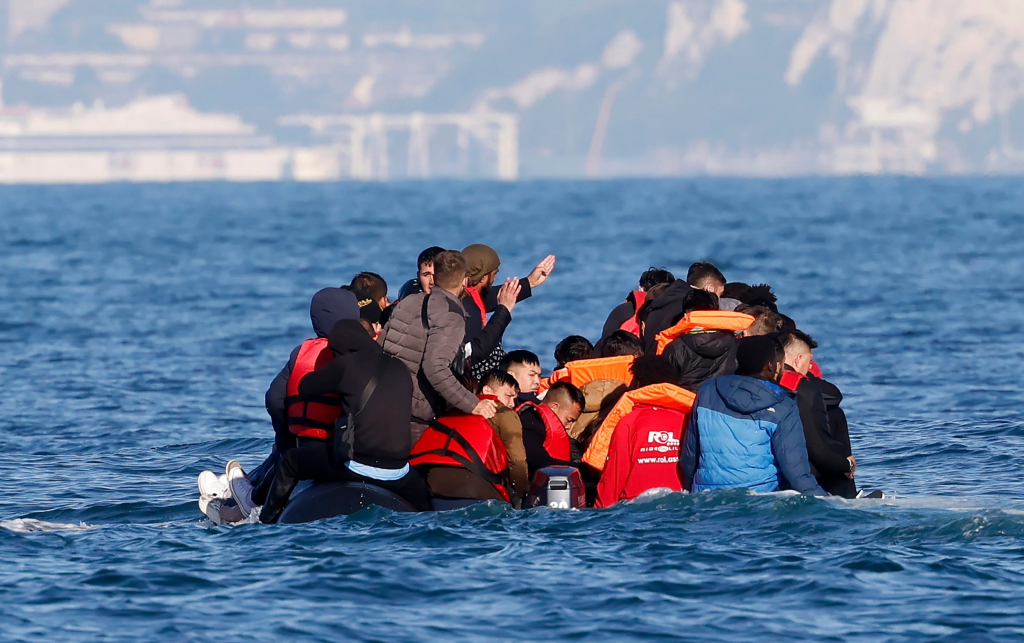Tragedy Strikes as Refugee Boat Sinks in Channel: Urgent Need for Safe Routes
Tragedy Strikes as Refugee Boat Sinks in Channel: Urgent Need for Safe Routes
The recent sinking of a refugee boat in the Channel has once again highlighted the desperate need for safe and legal routes for those seeking asylum. The loss of life in this tragic event serves as a stark reminder of the dangers faced by refugees and migrants as they attempt to cross treacherous waters in search of safety.
It is imperative that immediate action is taken to address this humanitarian crisis. Safe and legal routes must be established to provide a lifeline for those fleeing conflict, persecution, and poverty. Without these options, individuals are forced to take perilous journeys, often falling victim to human traffickers and dangerous conditions at sea.

In a devastating incident in the English Channel, a boat carrying dozens of refugees encountered difficulties, resulting in the loss of one life. The incident occurred near the coast of Grand-Fort-Philippe, alarming authorities and prompting a swift rescue operation. This tragedy once again highlights the urgent need for safe routes and effective measures to prevent such dangerous journeys. In this article, we delve into the details of the incident, explore the ongoing challenges faced by refugees, and discuss the importance of establishing safe pathways for those seeking asylum.
The Tragic Incident
A Desperate Journey
The international community must come together to ensure the protection and well-being of refugees and migrants. This includes providing safe passage, resettlement opportunities, and access to asylum procedures. It is only through a coordinated and compassionate response that we can prevent further tragedies and uphold the fundamental human right to seek asylum.
The time to act is now. The lives of countless individuals depend on our collective commitment to creating safe and dignified pathways for those in need.

Late at night on Friday, a migrant boat, carrying approximately 66 people, was spotted about five miles off the coast of Grand-Fort-Philippe. The boat’s precarious journey across the English Channel had taken a tragic turn, leaving the passengers in a perilous situation. The French agency, Premar Manche, which monitors the Channel, received a distress message and immediately initiated rescue operations.
Rescue Efforts and Loss of Life
Rescue ships swiftly reached the scene, but tragically, one person onboard was pronounced dead. Another individual was in critical condition and urgently transported to a hospital in Calais by helicopter. Despite the immediate response, the search for survivors continued, with both air and sea operations combing the area for any remaining individuals in distress.
The Alarming Reality

This incident serves as a stark reminder of the dangerous conditions refugees face when attempting to cross the English Channel. While the number of people reaching England via small boats has decreased compared to previous years, the risks remain high. The treacherous journey, often orchestrated by people traffickers, poses significant threats to the lives of those seeking safety.
The Response and Ongoing Challenges
Government Priorities and Proposed Solutions
The UK government, led by Prime Minister Rishi Sunak, has identified “stopping the boats” as one of its key priorities. Despite legal challenges, the government plans to send some asylum seekers to Rwanda as part of its strategy to discourage irregular migration. However, critics argue that this approach is neither workable nor principled, and safer alternatives should be explored.
The Perils of Channel Crossings
The science minister and government officials have emphasized that the Channel crossing is not a safe route. This dangerous journey, undertaken out of desperation, exposes individuals to the risks posed by people traffickers. The government aims to disrupt the economic model of these criminal networks and eliminate the incentives for irregular migration.
The Need for Safe Routes
Enver Solomon, the chief executive of the Refugee Council, highlights the urgent need for safe routes to prevent further tragedies. Instead of shutting down existing pathways, Solomon advocates for the creation of safer alternatives that would spare individuals from risking their lives in the world’s busiest shipping lane. The government must adopt a compassionate approach to protect human life and address the root causes of forced displacement.
Conclusion
The recent loss of life in the English Channel serves as a heartbreaking reminder of the dangers faced by refugees seeking a better life. Urgent action is needed to establish safe routes and dismantle the networks of people traffickers. By providing secure pathways, we can protect vulnerable individuals, prevent further tragedies, and uphold our collective responsibility to safeguard human life. It is crucial for governments, humanitarian organizations, and society as a whole to work together to address the underlying causes of forced migration and ensure a safer future for those seeking refuge.
Additional Information:
- The primary keyword: “Refugee Boat Sinks in Channel”
- Secondary keywords: “English Channel refugees,” “asylum seekers,” “safe routes,” “people traffickers”
- Tone of Voice: Compassionate and informative



